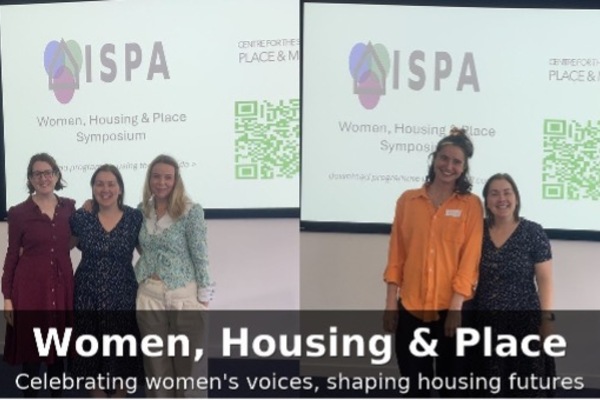Political circumstances hung heavy over this year’s Chartered Institute of Housing conference, just as they did last year in the aftermath of the Brexit vote. This year, housing professionals were reflecting on the implications of the snap general election and shock result, as well as the terrible events at Grenfell Tower in London and what needs to be done to prevent a repeat of anything like this tragedy in the future.
The combination of these events, and the recognition by both politicians and public alike that there is a housing crisis, means that for the first time in many years “social housing”, housing that is actually affordable for people on low incomes, is back on the agenda. Indeed, the fringe session with former Midland Heart CEO Tom Murtha regarding the recently released documentary “Dispossession: The Great Social Housing Swindle” was one of the best attended and impassioned events I attended. There is a clear feeling across the sector that we need to rediscover and strengthen our social purpose – to remember why we are here. Indeed, this seemed to be the implicit theme of the entire conference.
The wider conference was bigger than ever this year, and included: sessions focusing on the changing strategic environment and political landscape;‘masterclass’ sessions focussed on practical policy issues such as mergers in the sector, tenant engagement and funding for supported housing; a Housing Management stream; and “in conversation” sessions with the Manchester Mayor, Andy Burnham and Shadow Secretary of State for Housing, John Healey.
Particular highlights were a session assessing the political landscape following this recent tumult. Andrew Rawnsley, Tim Shipman and Gaby Hinsliff provided some much needed insight into the changing political situation. The discussion focused around the unpredictability of politics at the moment (following Brexit, Donald Trump’s election and the recent general election in this country), concluding that it is very hard to predict what will happen next. There was also discussion of Grenfell Tower and political implications this has for the sector and politics more widely.
Gavin Smart (Deputy CEO, CIH) chaired a great session on the risks and opportunities of a deregulated sector; this was especially relevant given the regulatory issues raised by recent events in Kensington. The final day included a fascinating session on balancing commerciality and social purpose with Andy Milligan (founding partner of This is Caffeine, a strategic business consultancy) exhorting the sector to “…be more Pirate!”. He argued that “pirates” saw a society that they didn’t like and so created their own, based on social enterprise – the Pirate Code was apparently the first governance document to contain social insurance provisions and a guarantee that all would share equally in the spoils of piracy. He did also acknowledge the more morally dubious aspects of pirating.
The conference should have closed with an address from the Housing Minister Alok Sharma, but a last minute change saw Marcus Jones MP (Minister for Local Government) give a morning address to delegates. In a short address, Jones praised the sector for its response to the Grenfell Tower tragedy and reaffirmed the Government’s commitment to ensuring that nothing similar happen again and their commitment to building enough homes.
In place of the scheduled Minister’s address was a specially arranged session to discuss the implications of the Grenfell Tower fire on the sector and this was well received as a timely and relevant addition to the programme. The panel (chaired by Gavin Smart) included David Montague (CEO of London and Quadrant), Paul Isherwood (Director of Asset Management at NIHE) and Sam Webb (member of the All Party Parliamentary Group on Fire Safety). They highlighted a number of key implications of Grenfell Tower, ranging from questions of regulation, to reflections on what the incident says about the sector’s and society’s broader attitude to social housing and its tenants. All present at the conference recognised that this should represent a “sea-change” moment in housing policy, yet concerns were voiced about whether this would lead to action actually being taken.
Given the “housing crisis”, implications of the Grenfell Tower fire, and ongoing effects of welfare reform on people’s ability to secure housing, there seemed to be a will from delegates at the conference to redouble the sector’s efforts to provide housing for people who really need it at a rent that they can actually afford. Despite the extraordinary context that framed this year’s conference, this strengthening of the sector’s social roots and mission to provide genuinely affordable housing offered genuine hope for the future.
Dr Yoric Irving-Clarke
Policy & Practice Research Officer, CIH






